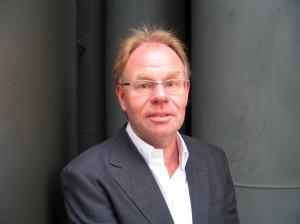DPP deadline: Vendors for file-based Quality Control compliance announced

Kevin Burrows: “It is great to have had such a positive response to the programme from manufacturers”
As the 1 October target for UK broadcasters to make the move to file-based delivery of programmes approaches, the industry body driving the initiative — the Digital Production Partnership (DPP) — has announced that over 20 manufacturers of quality control (QC) and test and measurement (T&M) equipment are now signed up to its Compliance Programme.
This, and guidelines that will follow it, are intended to assist broadcasters and post production facilities, which are now assuming more responsibility for QC, select ‘trusted products’ that will work to DPP standards. The aim is to increase the implementation rate for digital delivery by guaranteeing that files comply with the DPP AS-11 standard, which was developed in conjunction with the US Advanced Media Workflow Association (AMWA).
As signatories to the Compliance Programme, manufacturers have to give details of tests that have been completed, plus sample files and results relating to file delivery or processing products that are either on sale today or being developed.
The current list of companies is: Amberfin (part of the Dalet group), Axon Digital Design, Blue Lucy, Cambridge Research Systems, Cinegy, Digimetrics, Emotion Systems, ERA (on behalf of Venera Technologies), Eyeheight, Front Porch Digital International, Harmonic Inc, Interra Systems Inc, Metaglue, MOG Technologies, Nativ, Nugen Audio, Quixel, Root6, Signiant Inc, Tektronix UK, Telestream, Vidcheck and Wohler Technologies.
Through the Compliance Programme the DPP intends to set quality threshold tests that products will have to pass. Conforming to the criteria will be recognised through the DPP Trademark.
Kevin Burrows, the DPP’s technical standards lead and chief technical officer for broadcast and distribution at broadcaster Channel 4, comments, “It is great to have had such a positive response to the programme from manufacturers. We are delighted that the DPP’s standards and guidelines are so valued that companies are choosing to work with us. Thanks to their engagement we have already made significant progress in establishing minimum compliance criteria, which we hope to publish soon.”
Among the broadcasters involved in the DPP are dedicated sports broadcasters BT Sport, which has been file-based since its launch last year, and Sky Sports. Both are already working to the EBU R128 loudness specification, which is one of the key QC standards demanded by the DPP. The BBC, ITV, Channel 4 and Channel 5, which also broadcast sports coverage, are also members of the DPP.
The chairman of Vidcheck, Graham Pitman, comments, “We have been involved with the DPP from the start and believe this initiative and similar ones that are being considered elsewhere in the world are essential to achieving smooth and reliable content workflow. Consequently, we are not surprised to be listed — we would have been shocked if we were not. We will be ensuring that when the DPP is ready to conduct compliance testing our equipment is compliant.”
Raphael Samad, business development director of file-based loudness control specialist Emotion Systems, comments that the company has also been involved in the drawing up of the Compliance Programme, attending interoperability days and other sessions. “We’re very happy to play an active part in this,” he says. “We’ve signed up to the compliance aspect, which has involved making our software available to the DPP so that they can see it is correct.”
The DPP Compliance Programme is associated with the EBU’s Strategic Programme on QC. Both initiatives are intended to broaden the range of equipment approved for quality control of programmes. Consultant Neil Hatton was the technical liaison between post production trade body UK Screen and the DPP. He has observed that encouraging manufacturers to comply with the DPP and EBU criteria will prevent the monopoly situation that existed in the past, where some brands were forced on suppliers as a condition of working for broadcasters.
The chair of the EBU Strategic Group for QC, Andy Quested, who is head of technology for BBC HD and Ultra HDTV, has recognised this point and said that making a range of equipment available for quality control can only be good for the market: “We need diversity in the market, otherwise there won’t be innovation.”

